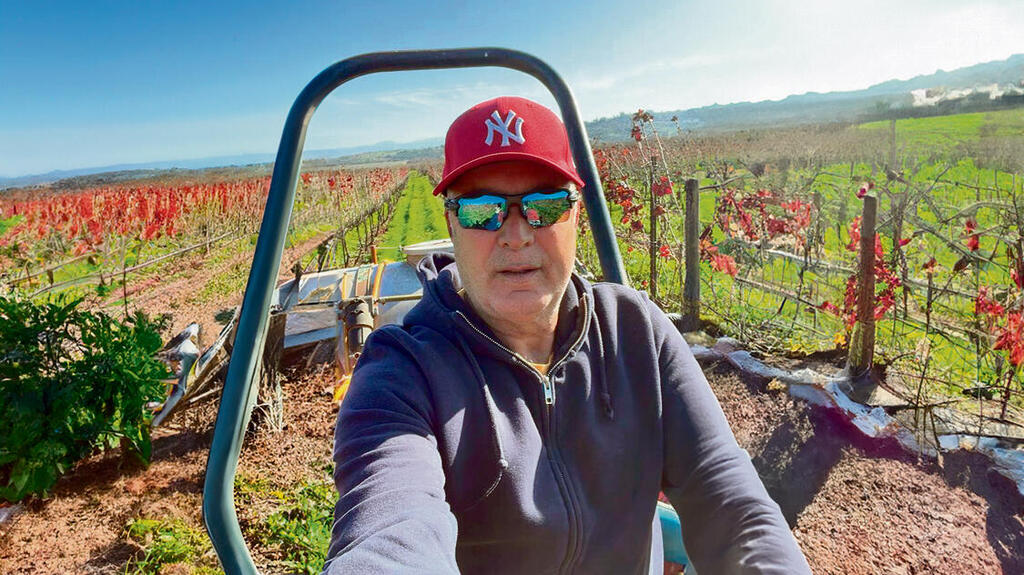Getting your Trinity Audio player ready...
When Yuval Albo from Moshav Ramot Naftali in northern Israel goes out to cultivate his pear orchards, only one kilometer from a nearby Lebanese village, he watches in disbelief at the routine of life on the other side of the border. "There are cars there that drive around as usual and the farmers cultivate their lands, and only here everyone was evacuated and there are so few of us left," he describes angrily.
Read more:
Just two weeks ago, a missile fired by Hezbollah's terror squads hit his settlement, about 70 meters from his house. Despite this, Albo refuses to leave his lands and thinks that evacuating tens of thousands of his neighbors from the conflict line settlements was an achievement for the terrorists.
1 View gallery


Yuval Albo, a farmer from Moshav Ramot Naftali, is still taking care of his land despite Hezbollah rocket attacks
"I'm not in favor of leaving," he explains. "It is neither a way nor a method to escape and be on the defensive. We must return the residents here immediately. It will cost us dead and wounded, but the army will be forced to be on the offensive so that we can live here in peace."
Albo doesn't trust the state to take care of compensating the farmers for losses in their fields and orchards, and is putting himself at great risk to try to save something for the future yield.
"This is not a factory where you can turn the machines off and on whenever you want. You work at a pear orchard for a whole year and arrive at a harvest that lasts 20 days. I must do the minimum required, so that next year I will have fruit," he explains. "In 2006, we immediately received compensation for each dunam of land and we left. But now I don't know how long the war will last and understand that it is not certain that the state will take care of compensating me. They require us to hire a battery of consultants, lawyers and accountants to fill out these horrible bureaucratic forms. Why aren't they helping us?"'
Albo also keeps a chicken coop for food. Sunday morning he got a new flock of 21 chicks. "I also see my work as a mission, making sure that people have something to eat in the country," he says. "Who will make sure that there is poultry on the shelves in the supermarket?".


